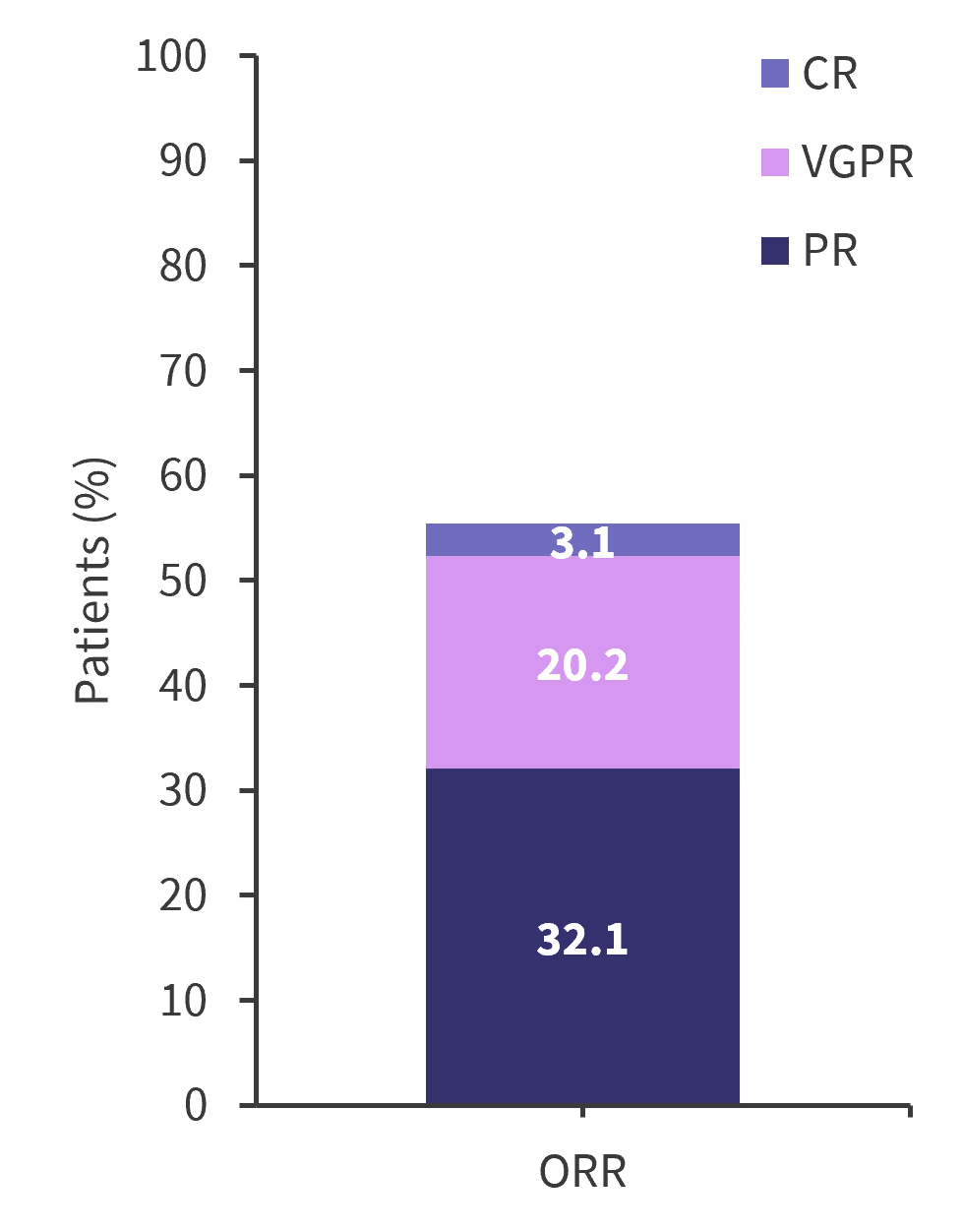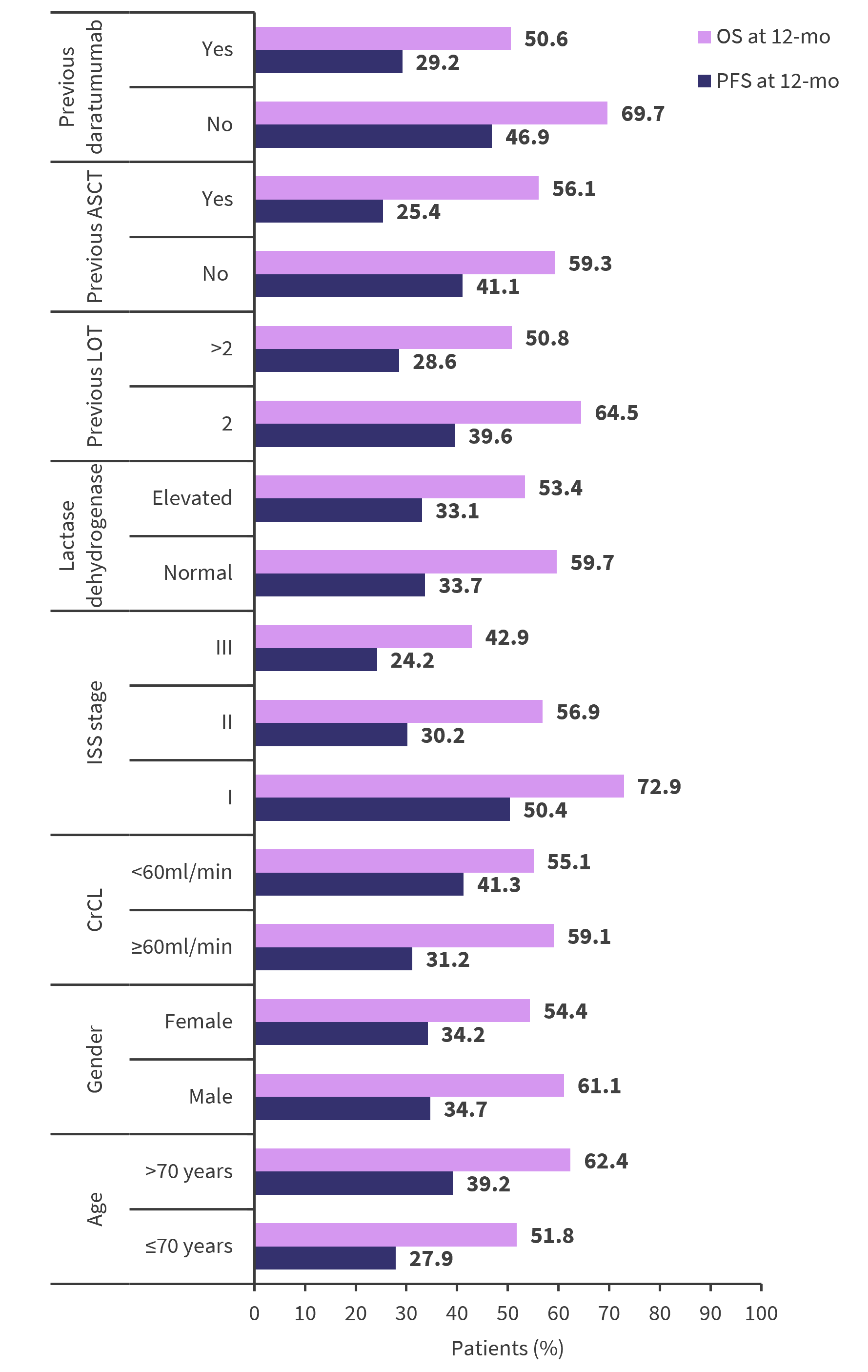All content on this site is intended for healthcare professionals only. By acknowledging this message and accessing the information on this website you are confirming that you are a Healthcare Professional. If you are a patient or carer, please visit the International Myeloma Foundation or HealthTree for Multiple Myeloma.
The Multiple Myeloma Hub uses cookies on this website. They help us give you the best online experience. By continuing to use our website without changing your cookie settings, you agree to our use of cookies in accordance with our updated Cookie Policy
Introducing

Now you can personalise
your Multiple Myeloma Hub experience!
Bookmark content to read later
Select your specific areas of interest
View content recommended for you
Find out moreThe Multiple Myeloma Hub website uses a third-party service provided by Google that dynamically translates web content. Translations are machine generated, so may not be an exact or complete translation, and the Multiple Myeloma Hub cannot guarantee the accuracy of translated content. The Multiple Myeloma Hub and its employees will not be liable for any direct, indirect, or consequential damages (even if foreseeable) resulting from use of the Google Translate feature. For further support with Google Translate, visit Google Translate Help.
EloPd for the treatment of RRMM: Real-world efficacy and safety data
Bookmark this article
The combination of elotuzumab, pomalidomide, and dexamethasone (EloPd) was investigated as part of the ELOQUENT-3 (NCT02654132) trial leading to its approval in patients with relapsed/refractory multiple myeloma (RRMM) who have received ≥2 prior therapies, including lenalidomide and a proteasome inhibitor.1
Here, we summarize a publication by Gentile et al.1 in Haematologica on real-world experiences and outcomes in patients with RRMM treated with EloPd compared with the clinical trial data from ELOQUENT-3.
Study design1
- Data was collected from 200 patients with RRMM treated with EloPd across multiple Italian centers outside of clinical trials
- Outcome data was compared with the ELOQUENT-3 trial data to establish real-world EloPd efficacy and safety
- All patients were treated with EloPd according to the marketing approval
Key findings1
- The overall response rate was 55.4% (Figure 1) with a median time to response of 1.8 months, comparable with ELOQUENT-3 at 53%
- Median progression-free survival (PFS) was 7 months, shorter than what was observed in ELOQUENT-3 which was 10.3 months
- At a median follow-up of 9 months, 126 patients had stopped treatment with EloPd; 88.9% of these were due to disease progression
- Median overall survival was observed at 17.5 months compared with 29.8 months observed in ELOQUENT-3
- The characteristic associated with the poorest 12-month PFS rate was an International Staging System Stage III at 24.2% and a hazard ratio of 2.55 (Figure 2)
- Adverse events and toxicity profiles were comparable with ELOQUENT-3, and no significant differences were observed depending on age
Figure 1. Overall response rate*

CR, complete response; ORR, overall response rate; PR, partial response; VGPR, very good PR.
*Data from Gentile, et al.1
Figure 2. 12-month PFS and OS rates by characteristic*

ASCT, autologous stem cell transplant; CrCL, creatinine clearance; ISS, International Staging System; LOT, line of therapy; mo, month; OS, overall survival; PFS, progression-free survival.
*Data from Gentile, et al.1
|
Key learnings |
|---|
|
- Gentile M, Vigna E, Palmieri S, et al. Elotuzumab plus pomalidomide and dexamethasone in relapsed/refractory multiple myeloma: a multicenter, retrospective, real-world experience with 200 cases outside of controlled clinical trials. Haematologica. 2024;109(1):245-255. DOI: 10.3324/haematol.2023.283251
Your opinion matters
28 votes - 3 days left ...
Related articles
Newsletter
Subscribe to get the best content related to multiple myeloma delivered to your inbox






